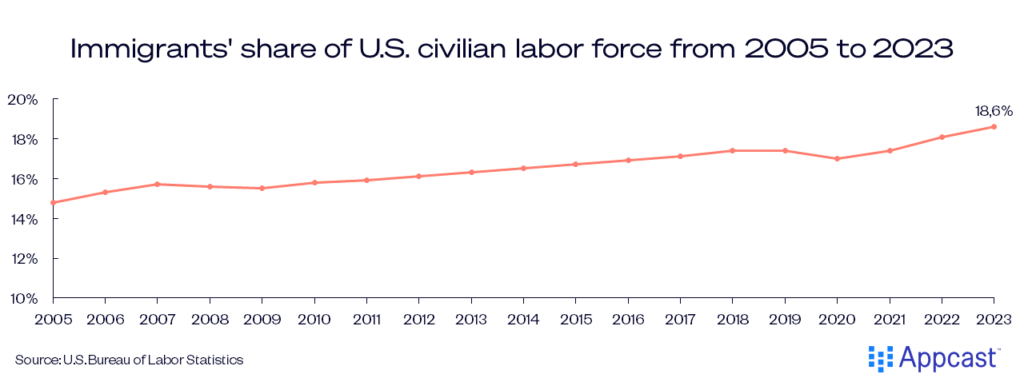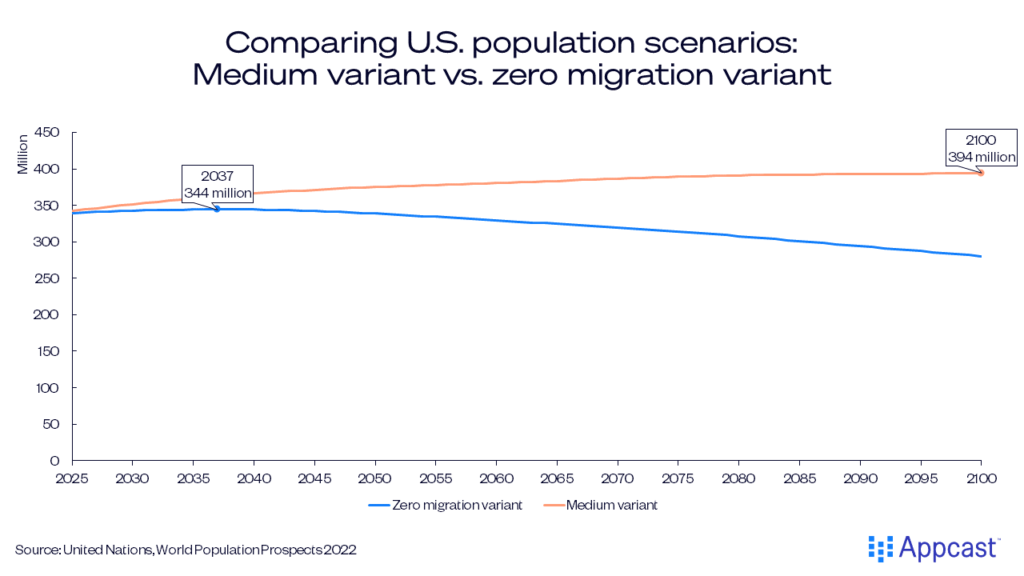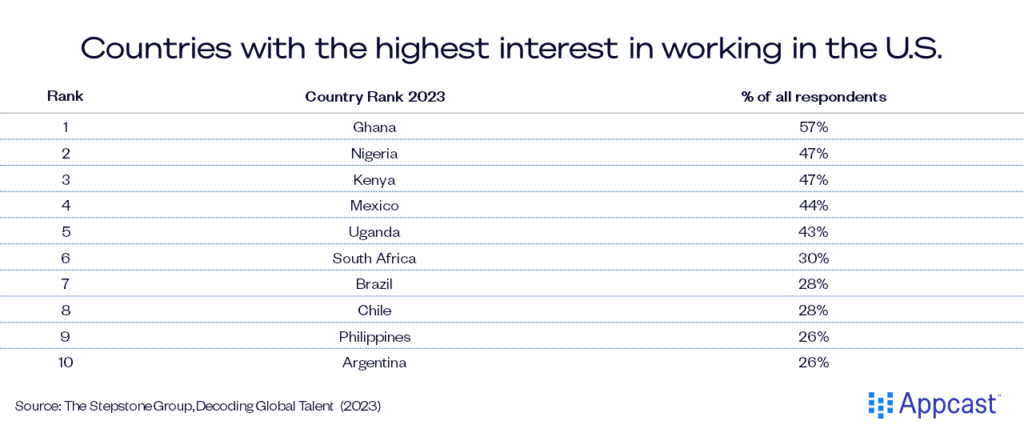Where can employers find international talent eager to relocate to the U.S.? What are the primary factors that attract international talent to new opportunities? And how can employers leverage our insights to fill vacancies?
Decoding Global Talent 2024, conducted by The Network, The Stepstone Group, and Boston Consulting Group, is one of the largest workforce studies worldwide. Drawing insights from a pool of over 150,000 workers spanning 180 countries, the study explores mobility trends and evolving preferences, empowering employers to hire top talent from around the world. For the survey respondents, the United States ranks as the second most attractive country in the world, right behind Australia, shedding light on what makes the United States such an appealing destination for global talent.
Today’s significance of immigration to the United States
The United States, built by immigrants, is globally known for its large population of 45.3 million foreign-born residents, constituting over 13% of the total population. Drawn by the promise of the “American Dream”, individuals have migrated to the U.S. for centuries in search of a better quality of life and expanded opportunities.
Immigration plays a vital role in the U.S. economy. Despite a significant slowdown in immigration flows to the United States following policy changes from 2017 to 2020 and the pandemic, immigrants’ share of the U.S. civilian labor force has steadily risen for over a decade, increasing from 14.8% to 18.6% by October 2023. In 2022, immigrants represented 29.2% of the workforce in construction, 21.3% in professional and business services, 20.5% in leisure and hospitality, and 14.3% in educational and health services. According to data from the U.S. Bureau of Labor Statistics, the participation rate of foreign-born men in the labor force was even higher, at 77.4%, compared to their native-born counterparts at 66.0%. Immigration has evolved into a fundamental part of the United States and, despite presenting certain challenges, benefits the economy.

Without immigration, the U.S. population would shrink in 13 years
The importance of immigration for the United States becomes even more apparent when examining different population scenarios. In the United Nations prospected scenario excluding immigration, the U.S. population would reach its peak of 344 million people in 13 years already before starting to decline, mirroring trends seen in many Western European countries that have already started to shrink despite their increasing migration rates. These countries face challenges related to workforce shortages, economic growth, and sustaining social welfare systems. However, with continued migration, the U.S. population is projected to approach 400 million people by the end of the century, with no population decline in sight. Given this perspective, immigration is a vital factor in sustaining population growth and demographic stability in many aging countries.

Global talent is willing to relocate to the United States
Based on the findings of the Decoding Global Talent survey, the United States maintains its prominent position as one of the most sought-after destinations for global talent, securing the second spot just behind Australia.
The survey also highlights the attractiveness of specific cities within the United States, with New York City ranking fifth and Los Angeles ranking 12th among the most considered cities for moving abroad. These urban centers serve as magnets for professionals worldwide, offering diverse job opportunities across various industries and cultural landscapes.
When examining the countries of origin for individuals displaying the highest interest in working in the U.S., respondents from Ghana, Nigeria, Kenya, and Mexico stand out with the strongest inclination to relocate.

The U.S. is standing out as a country of innovation and digitalization
Overall, the primary motivations driving global talent to seek work abroad are the quality of job opportunities (65%), a better quality of life (54%), and considerations regarding income, tax, and cost of living (48%). These factors also rank as the top three reasons for professionals choosing the United States as their preferred destination.
However, the United States distinguishes itself in two key areas. Firstly, it stands out for its reputation in innovation and digitalization, with 43% of respondents highlighting this aspect in the U.S. compared to 15% globally. No wonder, as tech is one of the largest and most influential sectors in the country’s economy and home to the most popular and influential tech giants Apple, Google, Amazon, Microsoft, and Meta. Secondly, the U.S. offers an easier path to citizenship, which appeals to 36% of respondents willing to relocate to the U.S. compared to 18% of total respondents.
How can employers attract global talent to the U.S.?
A significant portion (41%) of individuals seeking employment-related relocation to the U.S. express a preference for a temporary to medium-term stay, with a plan to return to their home country thereafter. This presents potential advantages for employers seeking to fill short-term vacancies and simplified visa processes.
However, those individuals have slightly expectations regarding employer support compared to all respondents who are willing to relocate. Of those interested in relocating to the United States, 81% expect their employer’s assistance with housing (compared to 79% globally) and 73% expect support with relocation (compared to 69% globally).
Conclusion
The United States continues to be a top destination for international talent seeking opportunities abroad. Young individuals and professionals in fields such as digitalization, data science, AI, IT, creative industries, and business management report a higher willingness to relocate to the U.S. Many respondents interested in such relocation express a preference for a temporary stay, intending to return to their home country thereafter. This presents an advantage for employers, simplifying visa processes and facilitating the filling of short-term vacancies.








